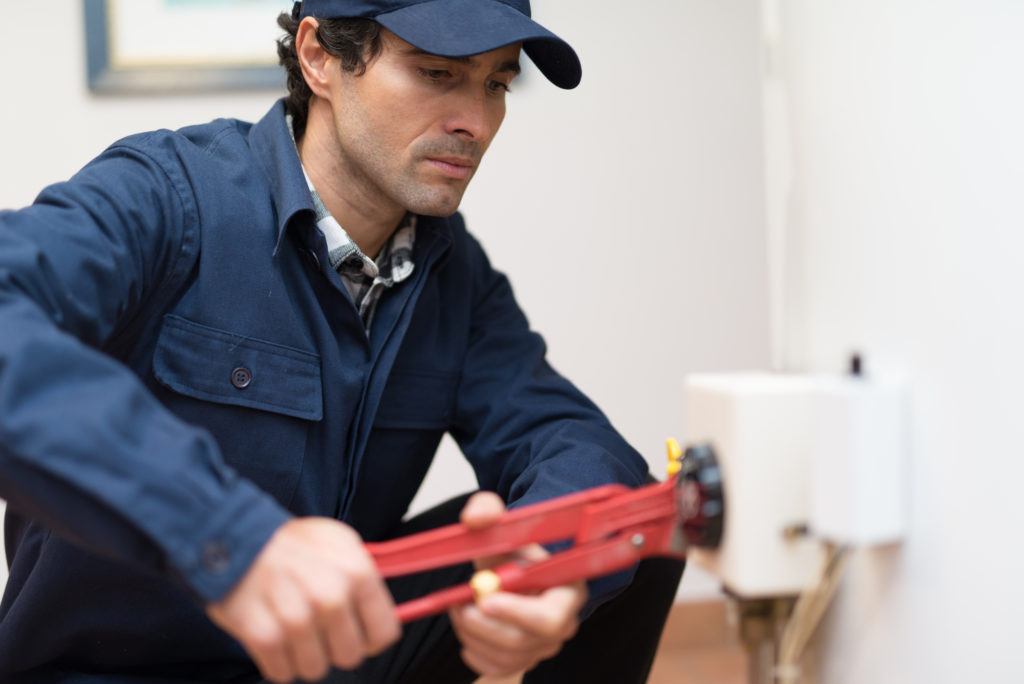Identifying And Solving Common Water Heater Issues
CallHow do you feel about Common Problems with Your Home Water Heater?

Imagine starting your day without your routine warm shower. That already sets a poor tone for the remainder of your day.
Every home needs a reliable hot water heater, but just a couple of know how to manage one. One easy way to keep your hot water heater in top form is to look for faults routinely and repair them as soon as they show up.
Remember to switch off your hot water heater before sniffing around for mistakes. These are the hot water heater mistakes you are probably to come across.
Water as well warm or as well cold
Every water heater has a thermostat that identifies how warm the water obtains. If the water entering your home is too warm in spite of setting a hassle-free optimum temperature, your thermostat could be defective.
On the other hand, too cold water might be due to a fallen short thermostat, a broken circuit, or inappropriate gas flow. For instance, if you use a gas water heater with a broken pilot light, you would get cold water, even if the thermostat is in excellent condition. For electrical heaters, a blown fuse may be the perpetrator.
Not nearly enough hot water
Hot water heater come in numerous sizes, depending on your hot water demands. If you run out of hot water prior to everyone has had a bath, your hot water heater is as well tiny for your family size. You ought to consider installing a larger water heater storage tank or going with a tankless water heater, which uses up less space and also is extra sturdy.
Weird noises
There go to the very least 5 type of noises you can hear from a water heater, but the most typical interpretation is that it's time for the water heater to retire.
Firstly, you should know with the regular seems a hot water heater makes. An electric heating system may sound different from a gas-powered one.
Standing out or banging sounds normally suggest there is a piece of debris in your tanks, and it's time to clean it out. On the other hand, whistling or hissing sounds may simply be your valves letting some stress off.
Water leakages
Leakages might come from pipes, water connections, shutoffs, or in the worst-case circumstance, the container itself. Gradually, water will corrode the container, and also discover its way out. If this takes place, you need to replace your hot water heater immediately.
However, prior to your change your entire container, make sure that all pipes are in location which each shutoff functions flawlessly. If you still need assistance determining a leak, call your plumber.
Rust-colored water
Rust-colored water indicates one of your hot water heater components is corroded. Maybe the anode pole, or the tank itself. Your plumber will certainly have the ability to identify which it is.
Lukewarm water
Despite how high you established the thermostat, you won't obtain any type of warm water out of a heating unit well past its prime. A water heater's efficiency might decrease with time.
You will likewise obtain warm water if your pipelines have a cross link. This means that when you turn on a faucet, warm water from the heating system flows in alongside regular, cold water. A cross link is easy to spot. If your hot water taps still pursue shutting the water heater shutoffs, you have a cross link.
Discoloured Water
Rust is a major reason for dirty or discoloured water. Deterioration within the water storage tank or a failing anode pole might cause this discolouration. The anode pole safeguards the tank from rusting on the within and need to be examined yearly. Without a rod or a correctly working anode rod, the warm water swiftly corrodes inside the storage tank. Contact a professional hot water heater specialist to figure out if replacing the anode rod will certainly fix the trouble; otherwise, replace your hot water heater.
Verdict
Preferably, your water heater can last 10 years prior to you require an adjustment. However, after the 10-year mark, you might experience any of these mistakes extra on a regular basis. At this point, you should include a brand-new hot water heater to your spending plan.
How To Troubleshoot 3 Common Water Heater Problems in Twin Cities
The Water Heater Is Leaking
A leaky cold water inlet valve A loose pipe fitting A leaky temperature and pressure relief valve A corroded anode rod A cracked tank Turn Off Your Water Heater:
Shut off your gas water heater by turning the gas valve on the unit to the “OFF” position. Shut off your electric water by switching its power off at your electrical panel. Look for a two-pole breaker labeled “water heater” and turn it to the “OFF” position. Move the ball valve connected to the water heater to be perpendicular to the piping at a 90° angle. Look for the Leak:
Depending on whether the water is coming from the tank's top or bottom, you’ll want to look for the leak in different locations.
If the leak comes from the top of the tank, carefully look for water escaping from the cold water inlet valve or loose pipe fittings. Rusted hot and cold water valves can have loose connections with the tank, with water leaking out of them.
https://mspplumbingheatingair.com/blog/how-to-troubleshoot-3-common-water-heater-problems
As an avid person who reads on Common Problems with Your Home Water Heater, I assumed sharing that excerpt was really useful. Are you aware of someone else who is occupied with the topic? Please feel free to promote it. Thank-you for taking the time to read it.
Rely on our emergency expertise.